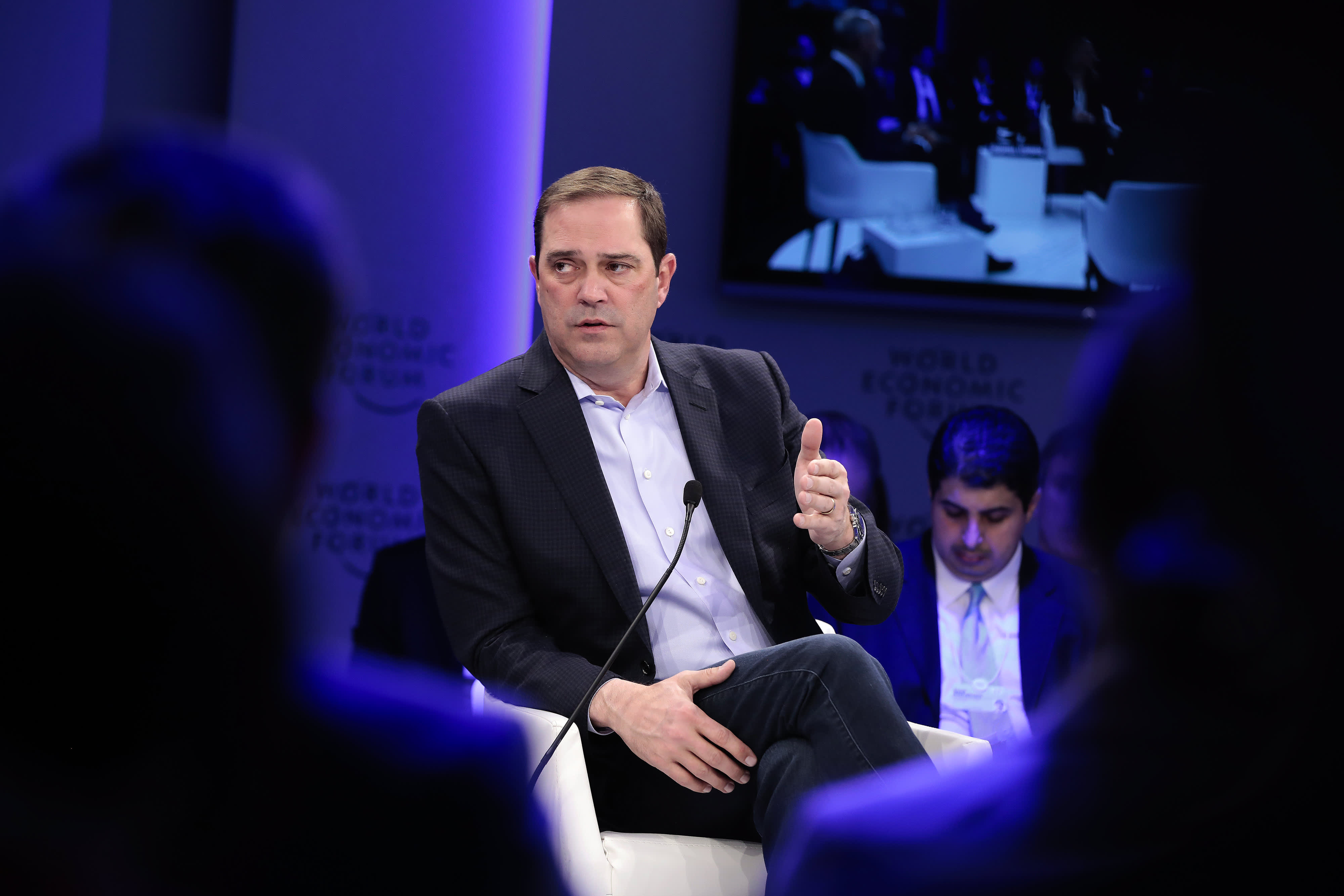Cisco CEO says the U.S. and China should find ways to co-exist

The United States and China should find ways to work together as it will serve the two countries well, said Chuck Robbins, the chief executive of Cisco.
President Joe Biden‘s administration will likely try to engage with Beijing more than the previous administration did, through robust discussions around pressing issues, he told CNBC’s “Squawk Box Asia” on Tuesday.
“I think there will be attempts to find solutions and I think the United States is also going to work very closely with our allies around the world,” Robbins said. “It is in the best interest of both China and the United States, for these two countries to actually figure out how we co-exist and how we work effectively together around the world. I think this administration realizes that.”
Still, the priority for the administration right now is to deal with the Covid-19 pandemic and vaccination rollout efforts, the Cisco CEO said.
Chuck Robbins, chief executive officer of Cisco Technologies Inc., speaks during a panel session at the World Economic Forum (WEF) in Davos, Switzerland, on Tuesday, Jan. 17, 2017. World leaders, influential executives, bankers and policy makers attend the 47th annual meeting of the World Economic Forum in Davos from Jan. 17 – 20.
Jason Alden | Bloomberg | Getty Images
U.S. and Chinese officials met earlier this month in Alaska — the first high-level meeting under the new administration got off to a rocky start. The meeting signaled that the Biden administration has no plans to fully abandon the previous administration’s tough tone in discussions with Beijing.
The two countries see each other as economic rivals as well as competitors in developing advanced technologies in areas including artificial intelligence and semiconductors. Some experts have said the rivalry can also spill into other areas such as green energy.
In January, Chinese antitrust regulators approved Cisco’s $4.5 billion “strategic acquisition” of Acacia Communications. The Chinese approval was reportedly the only hurdle left in closing that deal, which was completed at the beginning of March.
Robbins said Cisco was able to close the deal in the case of the Acacia acquisition, and that he hopes future deals “will be a little smoother” in terms of securing regulatory approval.
Chip shortage is a concern
Cisco’s earnings report last month showed that its biggest business — infrastructure platforms, which includes the sales of data center networking switches and routers — is still struggling.
During the wide-ranging interview with CNBC, Robbins also talked about growing concerns around global chip shortages that is hurting a range of industries, from automakers to gaming consoles such as the PlayStation 5.
The chip shortage began with a surge in demand for personal computers and other electronics as people worked and studied from home due to the pandemic. Many semiconductor firms are now only designing chips and outsourcing their production to other companies, known as foundries.
Cisco, which sells networking chips, is doing everything it can to meet consumer demand, and that includes buying ahead to keep the supply chain moving, according to Robbins.
“It’s going to create some short term pain, for sure, over the next couple of quarters,” he said.
However, once there is a level of predictability in the market, it will become manageable, he added.